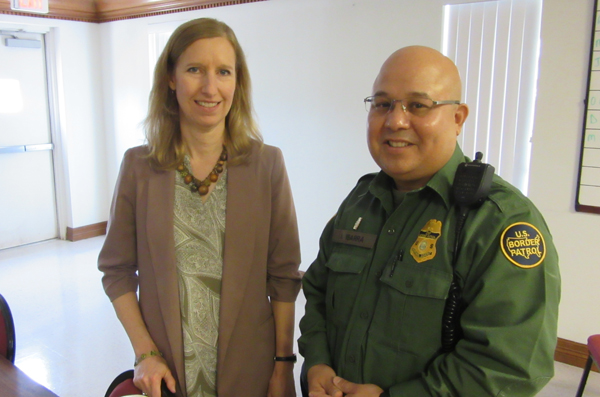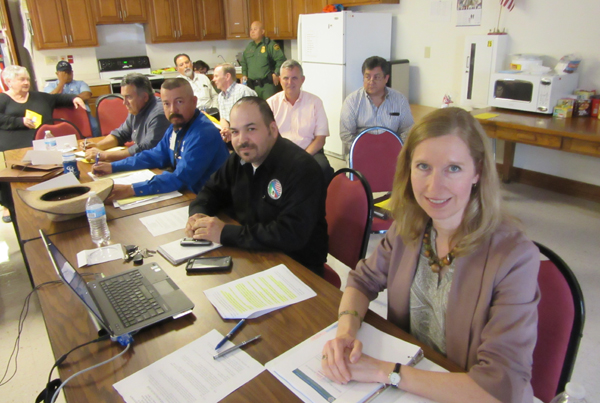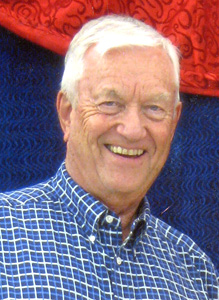- UTRGV Recognized By ED As Among Schools ‘Doing The Most To Lift Students Up’
- Halloween is a Tradition That Dates Back Many Years
- Esteban Cabrera – December 26, 1945 – October 11, 2024
- Ready for District
- Harlingen Opens First Pump Track in South Texas
- ACE Flag Football
- La Feria ISD Hires Chief of Police for District
- Three Ways To Protect Migratory Birds This Fall
- Goodwill and the RGV Vipers Team Up for a Skills Camp
- Santa Rosa ISD Offers Law Enforcement Cadet Program
Citizens Forum Hears Reports on River Security and Water Conservation
- Updated: August 4, 2017
“Rio Grande Valley now focal point of Border Patrol Operations
The shifting trends in border security and law enforcement on the border by the U.S. Border Patrol and water conservation efforts by the United States International Boundary and Water Commission (USIBWC) were the two top concerns of the speakers at this month’s meeting of the Lower Rio Grande Citizens Forum.
The well-attended meeting drew concerned citizens from a wide-range of interests from law enforcement to the question of water deliveries from Mexico to American cities and farmers on this side of the border.
Omar Rios, Citizens Co-Chair got the program underway by welcoming and introducing those present representing: farmers, law enforcement, city officials, environmentalists and interested citizens.
Tony Ibarra, U.S. Border Patrol Agent, spoke first about the shifting trends in the Border Patrol Operations of his department, which has the responsibility to protect the border along the Rio Grande from the Gulf of Mexico to the Pacific Ocean, and also the Canadian border.
The USBP Agent told the audience that the Rio Grande Valley has become the focal point of Border Patrol operations along the border. His presentation included a video, titled The Shift, that covered the shifting trends throughout the several U.S. Border Patrol Sectors. Those Sectors include: The San Diego Sector, the Tucson Sector, the Yuma Sector, the El Paso Sector, and the Rio Grande Valley Sector. “Right now,” he said, “The Rio Grande Valley Sector is the busiest in the nation.”

Sally Spener, Secretary USIBWC El Paso and Tony Ibarra, U.S. Border Patrol Agent RGV Sector. Photos: Bill Keltner/LFN
“We are striving to make the Rio Grande Valley safer than ever before,” he said, adding: “We are being bombarded. We are dealing with what we have to work with, but we urgently need more troops on the ground and more equipment. Most of the persons crossing the river illegally that we are now apprehending are coming from Central American countries like: El Salvador, Guatemala and Honduras.”
Next on the program was Sally Spener, Secretary from the El Paso USIBWC office. She gave the public forum encouraging information on the current status of Mexico’s Rio Grande Water Deliveries to the United States, and what to expect in the coming months.
She also reported that after years of declining reservoir levels, an agreement was reached with Mexico in 2012 on a 5-year pilot program to address the challenges. But, there are shortages due to unforeseen problems, like an earthquake in Mexico and a drought.
Spener informed the forum that IBWC has formed a Binational Hydrology Work Group to help both Mexico and the United States to work together to live up to the several water treaties existing between the nations.
For more information about the work of the United States Boundary and Water Commission, call 956 565 3150 or email [email protected].





